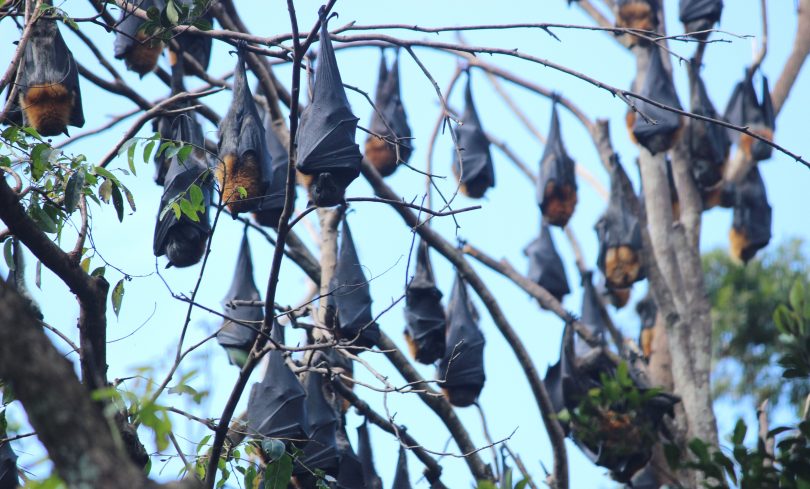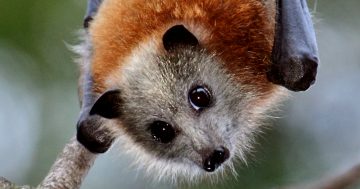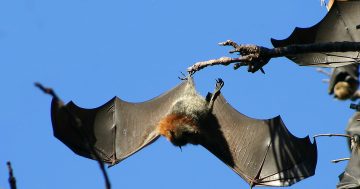
In 2016 20% of Australias’ flying fox population “camped out” in Batemans Bay. Photo: Eurobodalla Shire Council.
Canberrans aren’t the only species to have returned to the Eurobodalla this summer, Grey-headed Flying-foxes currently occupy five day-time camps across the shire.
Camps at Catalina, the Water Gardens at Batemans Bay, Moruya Heads, Tuross Head and Narooma are all being monitored with the experience of almost three years fresh in the minds of residents and Eurobodalla Shire Council.
Locally, the Moruya Heads camp has the greatest number of bats at the moment, although Council says the population appears to be stabilising after large increases through December and January.
Dependent young are present at all five Eurobodalla camps.
Heat stress is a particular welfare issue during the summer months, with the community asked to assist in the monitoring effort by reporting camp conditions and sightings of any new day-time camps.
Batemans Bay was rattled in 2016 when 100,000 flying foxes set up a camp in the Water Gardens, right in the heart of town.
The noise, the smell, the intensity of the situation was described as a natural disaster and prompted a $2.5 million dispersal plan, which included smoke, loud noise, flashing lights, and vegetation clearing.
Residents and Eurobodalla Shire Council have been keeping watch ever since, with the recently adopted Eurobodalla Flying-fox Management Plan guiding any action.
Flying-foxes and their camps are protected under NSW and federal legislation; they play a critical ecological role in pollination and long-distance seed dispersal. A single flying-fox can disperse up to 60,000 seeds in one night, contributing directly to the reproduction, regeneration and viability of forest ecosystems.
The occurrence of flying-foxes in the Eurobodalla is tightly linked to the flowering and fruiting of forage trees; individual bats can travel up to 100 kilometres each night in search of food.
Flying-foxes roost or camp in groups during the day and tend to fly out together at dusk to feed.
These large native bats move between a network of camps, which may be occupied continuously, annually, irregularly or rarely, across Australia.
Living near a flying-fox camp can be challenging, Eurobodalla Shire Council is able to assist affected communities through a series of initiatives aimed at reducing the impact, all are outlined in the Flying Fox Management Plan.
For more information about flying-foxes or to make a report head to Council’s website or contact Council’s Environmental Project Officer Mitchell Jarvis at [email protected] or 4474 1265.








